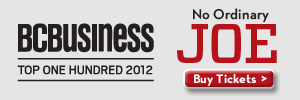The Primacy of the Invisible
By David Creelman
HR professionals are predisposed towards an analytical approach to management. We tease apart the pieces of any issue to achieve precision and clarity. However, at times, we should set aside our focus on concrete actions and measureable results and instead consider the primacy of the invisible.
That phrase, ‘the primacy of the invisible’ comes from a friend who studied philosophy prior to his work in HR. He suggests reflecting on what is most important in your own life. Is the important stuff concrete and measurable or does it include things like love, spirituality, and a sense of purpose? Most people find the things that matter most are invisible, hard to grasp, and impossible to quantify.
 This same primacy of the invisible applies to organizations. Intangibles like commitment, brand, and vision all matter a lot. We may try to get a handle on these concepts with surveys, but there is a risk that in focusing on the visible survey results we will wander away from the real invisible characteristic of a committed culture or compelling vision. We mustn’t be afraid of managing even where there are no good measures.
This same primacy of the invisible applies to organizations. Intangibles like commitment, brand, and vision all matter a lot. We may try to get a handle on these concepts with surveys, but there is a risk that in focusing on the visible survey results we will wander away from the real invisible characteristic of a committed culture or compelling vision. We mustn’t be afraid of managing even where there are no good measures.
Taking Direct Action, Obliquely
As soon as we decide something intangible is crucial then we may want to leap in with a five point plan for increasing it. This is not totally wrong, but again it denies the primacy of the invisible. When we get into a five point plan for how we are going to build trust or build a happier workplace or fix a failing relationship we risk going down the wrong track. The invisible, by its very nature, is rarely easy to change by direct action.
Many thinkers have noted that the worst way to become happier is to work really hard at being happy. Happiness is a by-product of other aspects of your life; it can only be approached obliquely. The same is true for most invisibles. If top management needs to build trust with workers then holding a meeting on trust is only going to make the employees even more nervous. To build a trusting business relationship you must work on being reliable, thoughtful, honest and open. That way of being engenders trust, but it’s clearly a way of life, not a carefully planned initiative.
What HR professionals need to have in their repertoire is some comfort with the inherent ambiguity that surrounds invisibles, and an understanding that oblique approaches may be the best way for making those critical invisible aspects of organizational life stronger.
Specific Approaches
There are some ways of dealing with the important invisible elements in organizations that are almost the opposite of what managers are used to. Here are three unusual approaches:
- Silence – Whereas silence is usually something we avoid, ancient orders of monks have long known silence is a valuable approach to understanding the invisible. Next time you have a meeting about how your employment brand is perceived by candidates, be willing to sit in silence for five minutes before you start into the bullet points.
- Put rightness before utility – If you want to build trust with the union don’t spend a lot of time analysing whether an action will build or reduce trust, instead learn to do what you feel is right, and do it because it is right not because it achieves some utilitarian goal. As you learn to act as your authentic self, trust and other invisibles will flourish.
- Avoid too much clarity – Something like a company’s vision needs to be able to evoke a wide range of feelings in a wide range of places and times. Don’t be afraid of the vague and ambiguous, ambiguity better captures the truth of the invisible than clarity does.
Being able to adopt a stance accepting the primacy of the invisible expands your capability as a manager and leader. Most of our working lives are spent in the nuts and bolts of tangible things, but there is more to organizations than what is visible. If you are comfortable managing the invisible then you’ll be a better manager.
David Creelman is CEO of Creelman Research, providing writing, research and speaking on human-capital management. He works with a variety of academics, think tanks, consultancies and HR vendors in Canada, the U.S., Asia and Europe. Mr. Creelman can be reached at dcreelman@creelmanresearch.com








